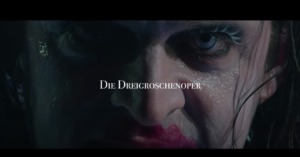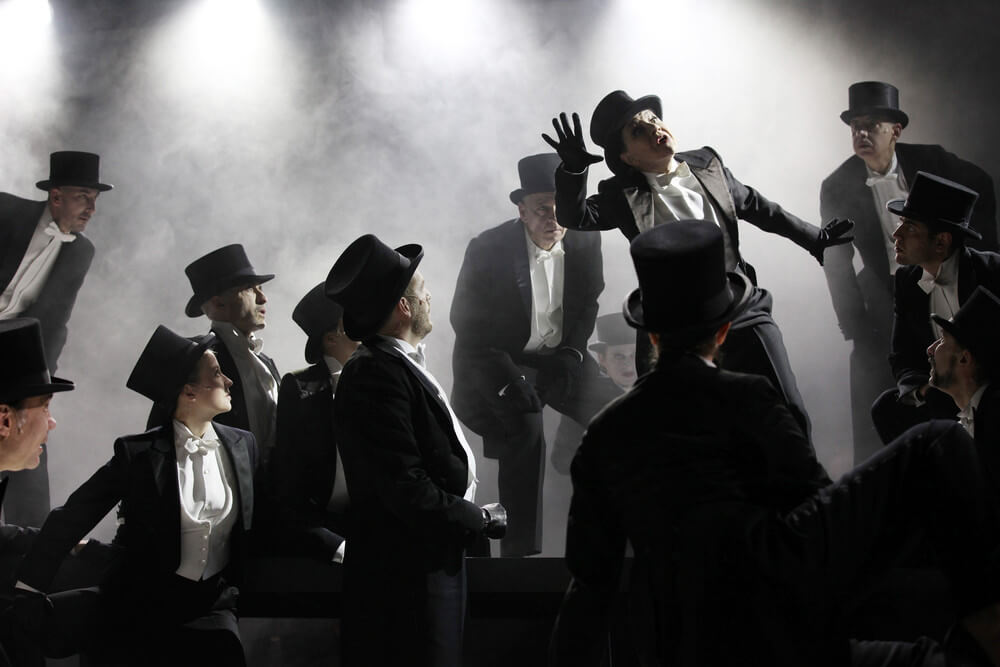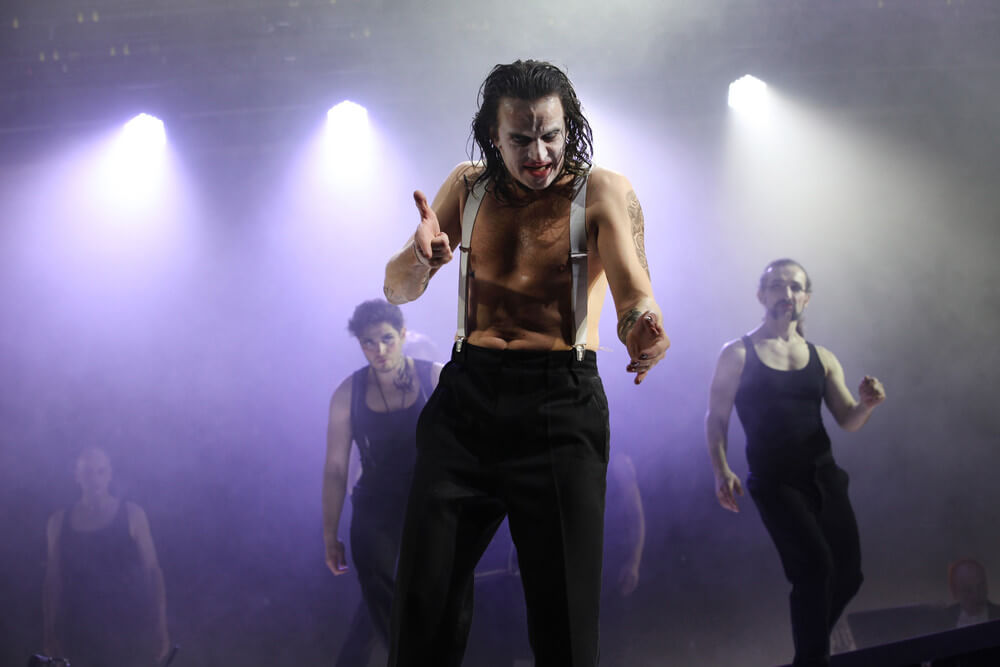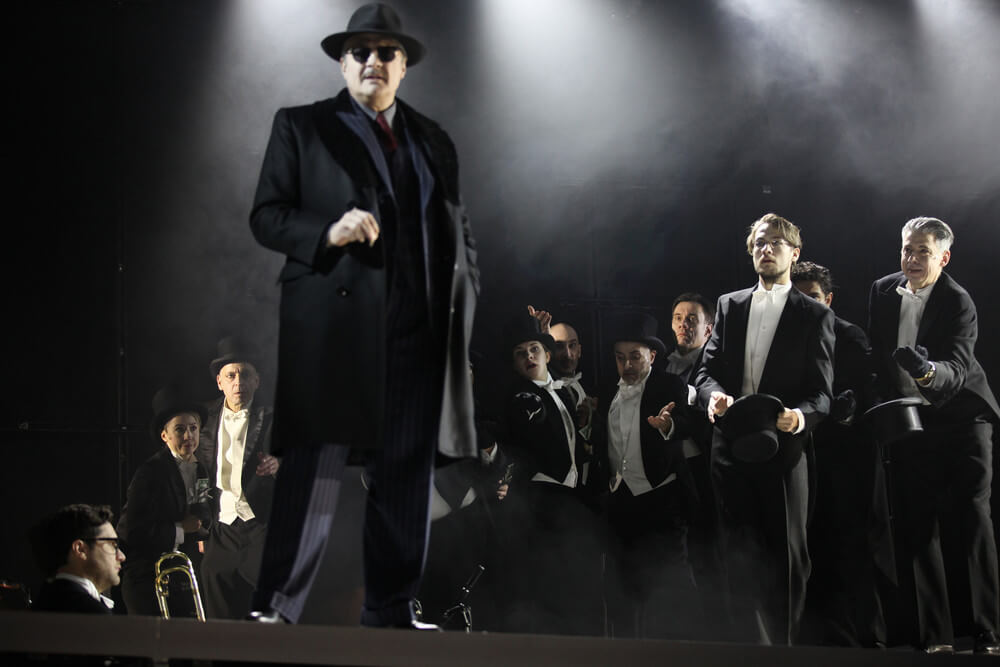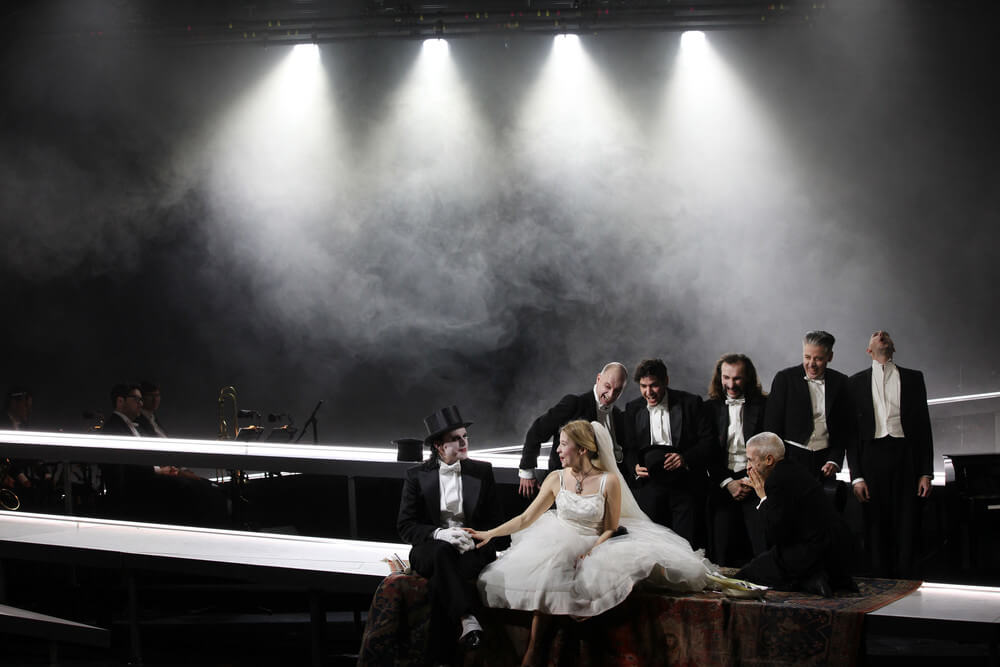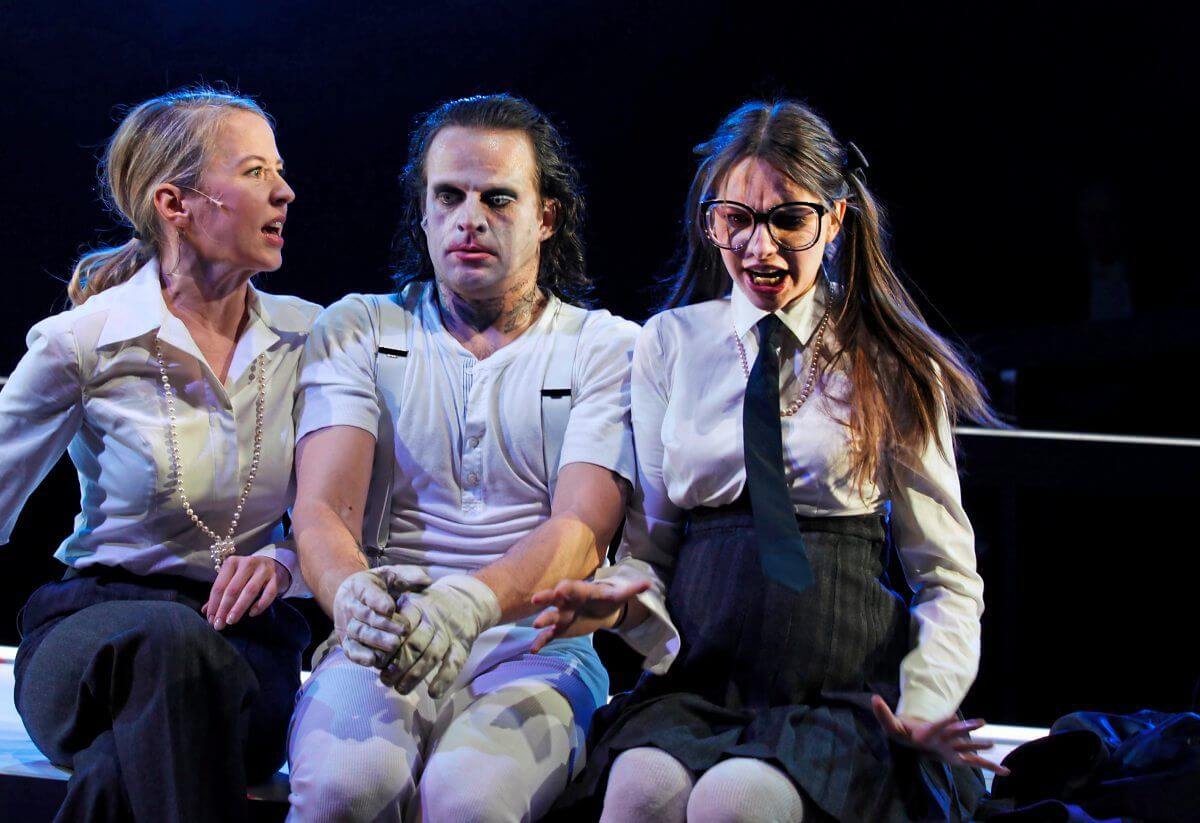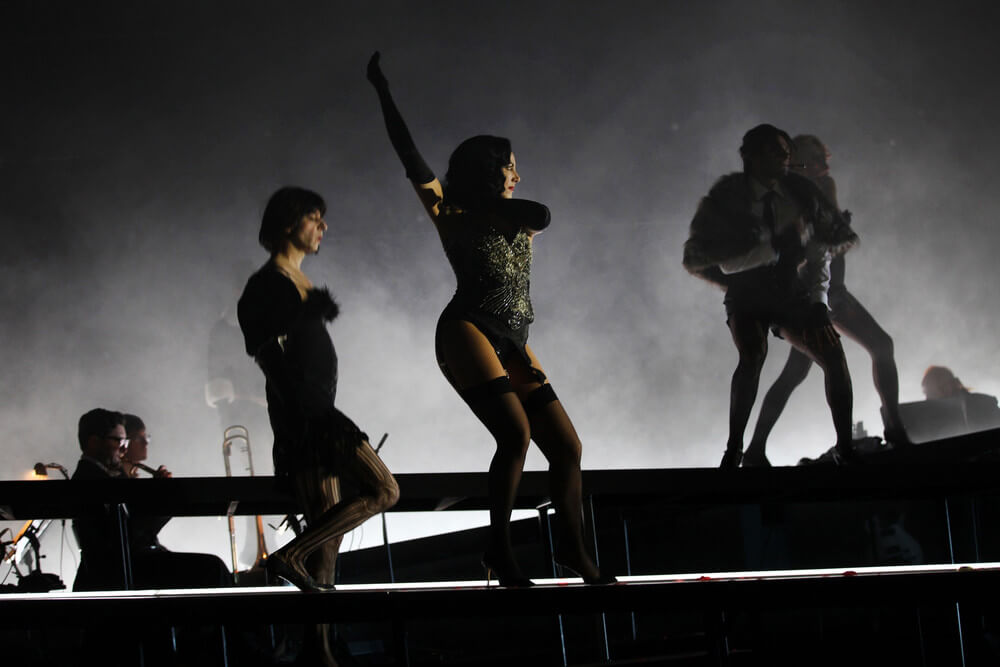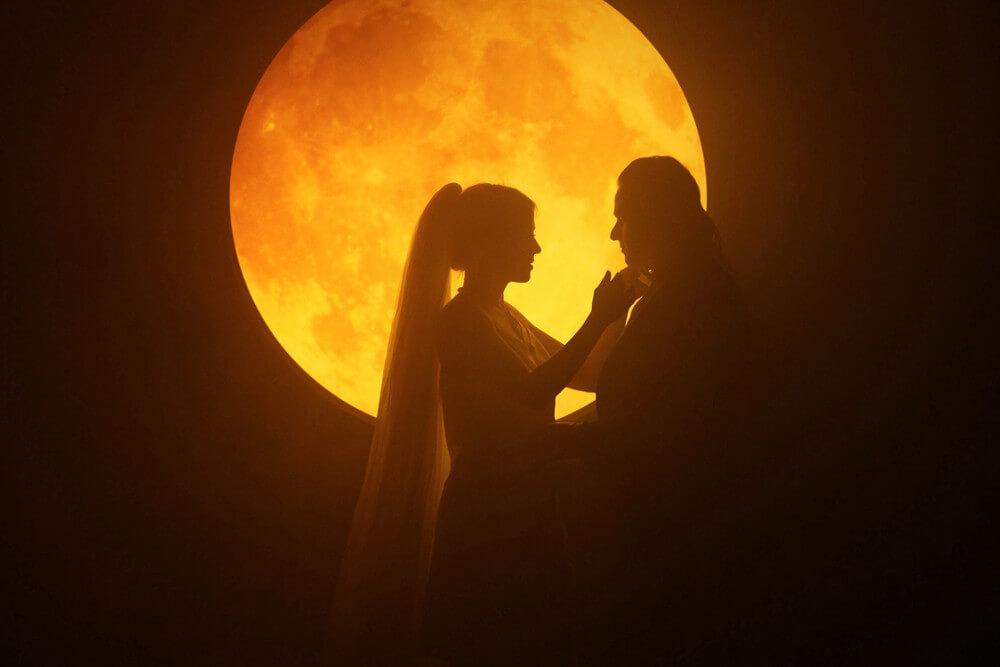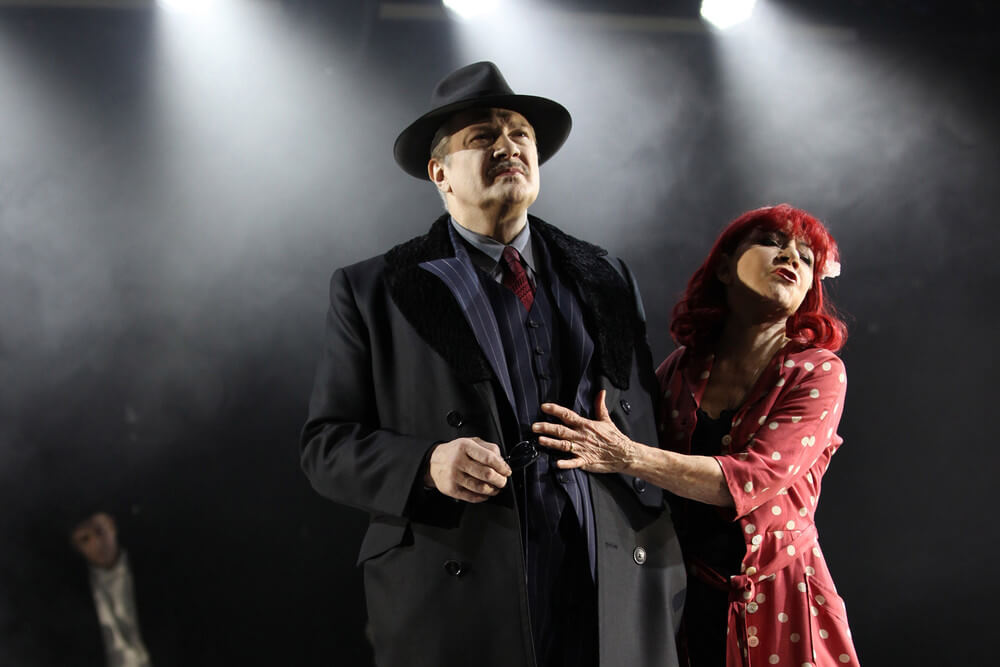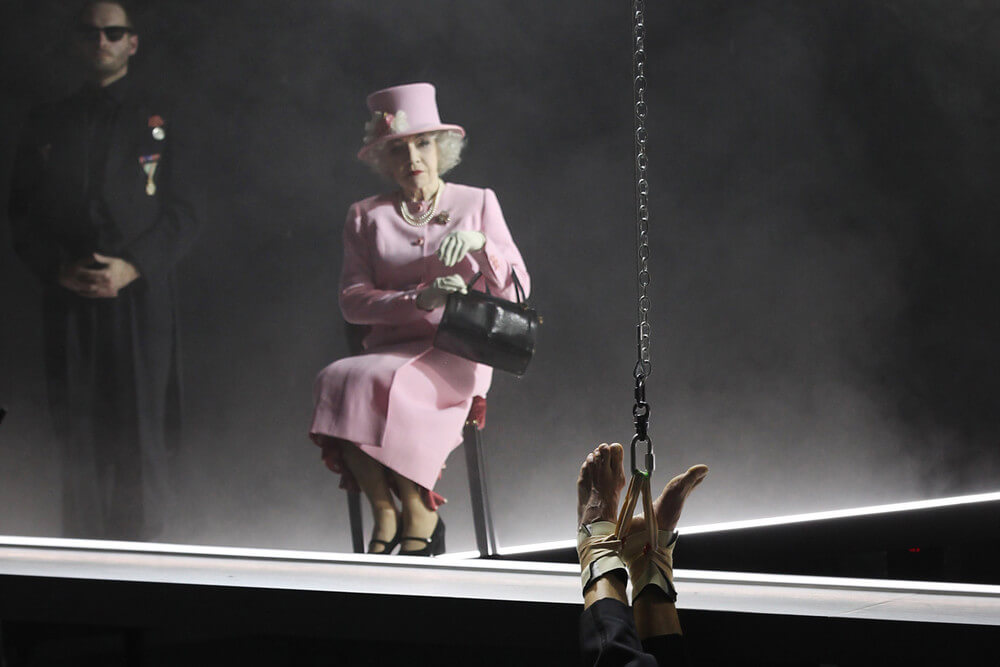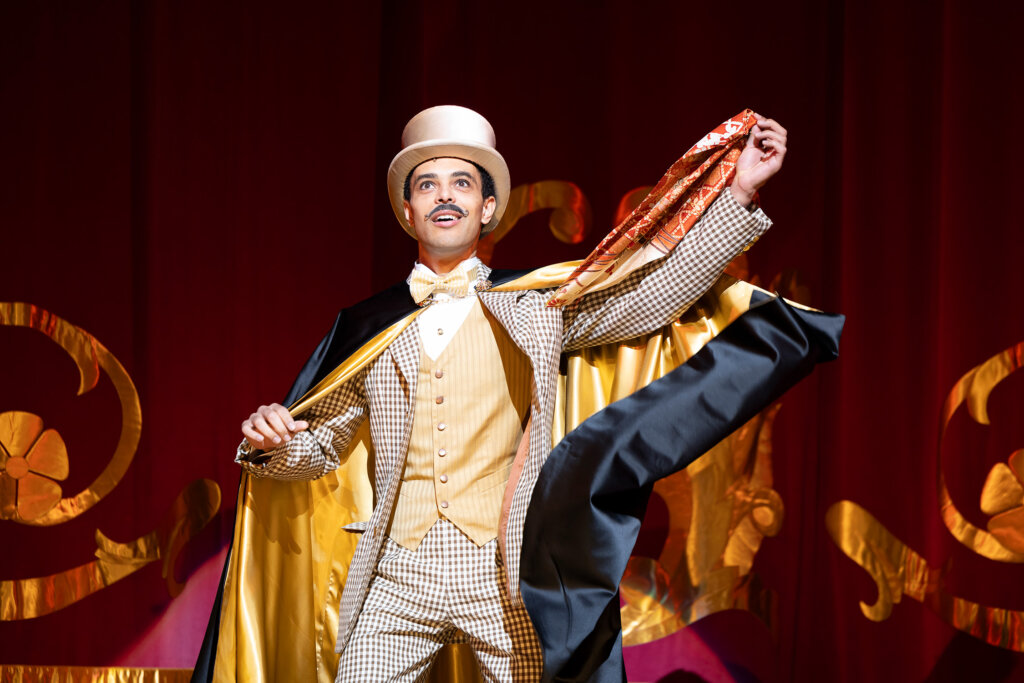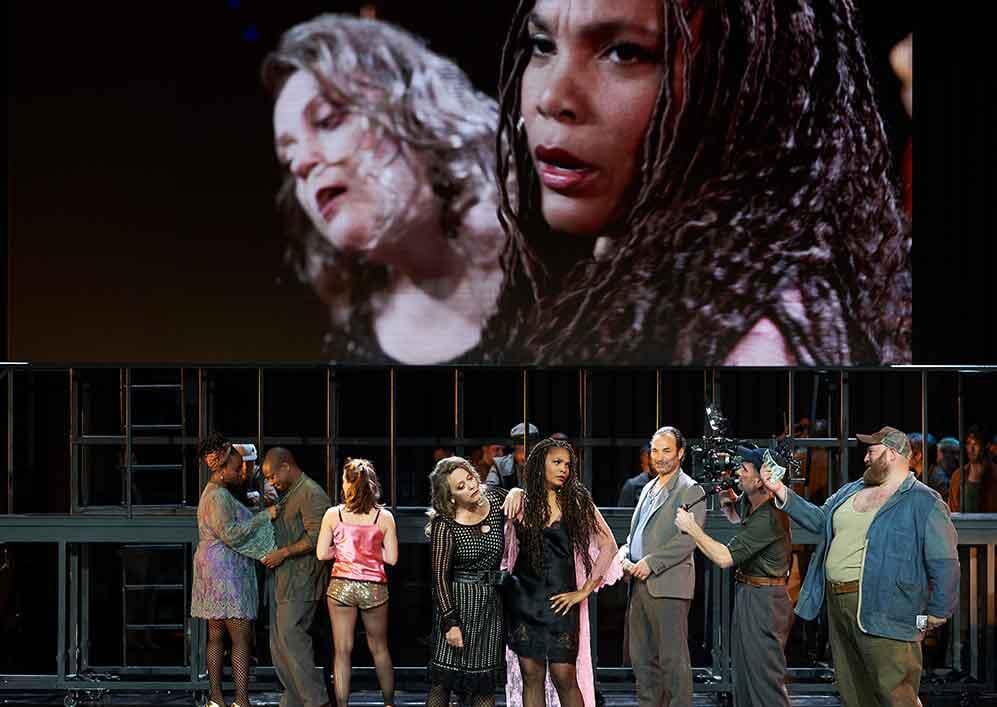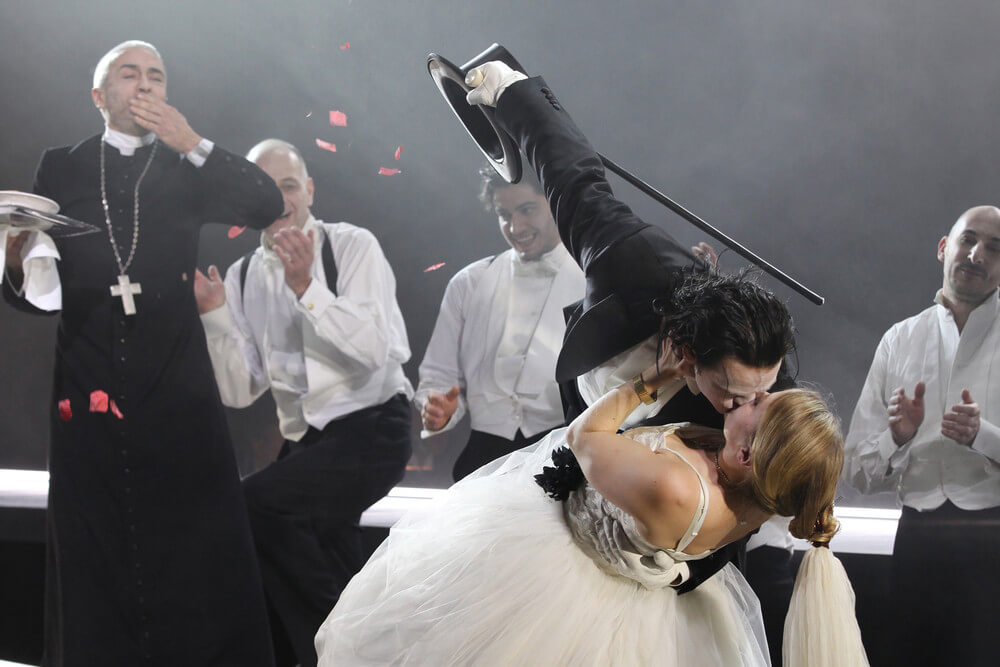
A dazzling new production of Die Dreigroschenoper opened on 5 September at the Theater in der Josefstadt, the oldest continuously active theater in Vienna, after previewing to sold-out audiences in June. Presented as “playing against Brecht’s epic theater style” (Wiener Zeitung), this major staging springs from the same creative team that mounted Lenya Story in 2017 in the same Kammerspiele theater: director Torsten Fischer, music director Christian Frank, and dramaturg Herbert Schäfer. Additional performance dates can be found here.
REVIEWS
“Torsten Fischer directs Die Dreigroschenoper without troubling himself about Bertolt Brecht’s style…. Brecht or not Brecht, that is the question. Is it better to follow the Brecht-style, whether strictly or with modern means, or is it better to play it as if he had never created Epic Theater? Torsten Fischer decides against the Brecht-style…. on Sunday the production was convincing overall.”
“Fischer directs the play like a ballet. Kurt Weill’s music will barely have begun to play when somebody or even the whole ensemble will start to bob up and down with their hips or do some dance steps. This is irritating, but the resulting artificiality also creates an atmosphere of underground comics: lemur-like, spooky, threatening. Brecht’s hoodlum milieu translated into the present.”
“The instrumental ensemble under the direction of Christian Frank gets the nasal shrillness right, but it lacks assertiveness. The accompanying rhythms of the ‘Kanonen-Song’ needed to bang more loudly; the battered chorale of the finale needed to sound more fanatical.”
一 Edwin Baumgartner, Wiener Zeitung (6 September 2021)
“The women here are not naive victims but rather ultimately allied with each other against infidelity. This fact emerges in the most ridiculous scene of the evening, when Polly and the police chief’s daughter Lucy come into conflict. The latter is performed with dry hysteria by Paula Nocker in her Josefstadt debut. The unremarkable—but still remarkably pregnant—schoolgirl soon turns into a scheming fury.”
“On the small Kammerspiele stage, thanks to the many slanting catwalks of the existing stage setting by Herbert Schäfer and Vasilis Triantafillopoulos, dynamic movement prevailed without allowing the performers to come across as harried. Simply placing the nine musicians in the spaces between the catwalks audibly reduced the volume of the sound. Given the fact that in the course of the evening the stage would be played by fifteen performers, who populated the small stage in the numerous somewhat over-choreographed choral passages, it could have come across worse.”
一 Salzburger Nachrichten (6 September 2021)
“Along with all of his praises, my highly esteemed colleague Guido Tartarotti rated the streaming premiere in April as analogously ‘somewhat smaller.’ But experienced live, in the Kammerspiele (and with an ultimately frenetic, cheering audience) there is no question of ‘somewhat smaller.’ Because with Bertolt Brecht and Kurt Weill’s Die Dreigroschenoper, the Theater in der Josefstadt has a great jewel in repertory.”
“The consistently marvelous musicians surrounding Christian Frank are in the middle of the action. Claudius von Stolzmann transforms as the entrancingly intensive anti-hero through the consciously cool scenery. Herbert Föttinger delivers an extremely powerful, splendid Peachum – that is a beggar king from a storybook, one who in his verbal gentleness emanates every violence of this world, not only the psychological.”
一 Peter Jarolin, Kurier (6 September 2021)
“The female characters, to which Fischer paid a lot of attention in this light and fog theater, are especially show-stopping. Gersthofer & co. heartily play a range of types and moods, from the occultly depressive (Jenny) to the superbly pragmatic (Polly) to the toxically girlie (Paula Nocker as Lucy). And the leg ballet of the male cast prostitutes brought the moon over Soho to trembling.”
一 Margarete Affenzeller, Der Standard (6 September 2021)
“… the theater’s highly musical ensemble grabs us by the coattail and it becomes clear how the coming almost-three-hours will be shaped: showman-like, cacophonous, expressive. In one word: appropriately nasty.”
“The playmaker, actually the ‘Joker’, is Claudius von Stolzmann as Macheath, whose chalk-white grimace, dead eyes, and blood-red mouth are missing only the purple tailcoat. Stolzman plays this archrival of Peachum as dangerously furtive, softly attracting attention and transforming quick as as lightning into the killer and child abuser who is sung about at the beginning. His dream-team partner—and not only because of a brotherly kiss referencing homoerotic bondage—is Domic Oley as the police chief Tiger Brown. He is truly not a predator in the lion’s den, but rather an official draped in noblesse oblige…. As these pals Mackie and Jackie sing the ‘Kanonen-Song,’ one cannot get Otto Dix out of one’s mind.”
“Torsten Fischer stages Die Dreigroschenoper as a strong women’s play. While Stolzmann’s Macheath whines without pride from the gallows and while Tiger Brown resorts to a widow’s veil (!), a last contender appears for the affections of Macheath the devilish seducer: Paula Nocker, in her Josefstadt debut as Lucy Brown, Tiger’s apparently heavily pregnant offspring. As she gets into a fight with Swintha Gersthofer’s Polly, Nocker’s Lucy is highly dramatic like the di Lammermoor. It is grand opera. Behind the thick schoolgirl glasses, this Lucy inspires dread. When Macheath says, ‘To you I would like to owe my life,’ one absolutely fears for him.”
一 Michaela Mottinger, Mottingers-Meinung (6 September 2021)
OTHER MEDIA
Video Trailer (click image to view)
Production Photos by Moritz Schell
- Maria Bill (Frau Peachum) and Ensemble
- Claudius von Stolzmann (Macheath) and Ensemble
- Herbert Föttinger (Peachum)
- Claudius von Stolzmann (Macheath), Swintha Gersthofer (Polly), and Ensemble
- Swintha Gersthofer (Polly), Claudius von Stolzmann (Macheath), and Paula Nocker (Lucy)
- Susa Meyer (Jenny) and Ensemble
- The moon over Soho in Vienna at the Theater in der Josefstadt. Photo: Theater in der Josefstadt
- Herbert Föttinger (Peachum) and Maria Bill (Frau Peachum)
- Dominic Oley (Tiger Brown), Maria Bill (Queen), and Claudius von Stolzmann (Macheath)
